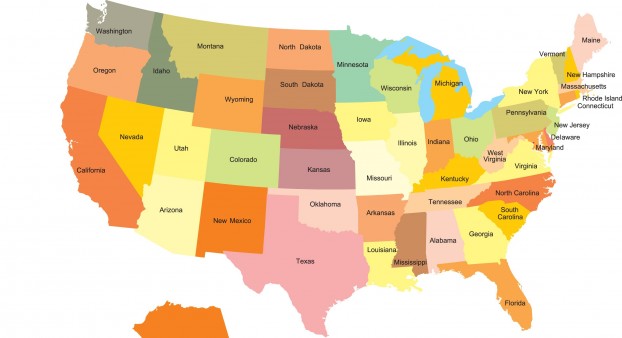Medicaid expansion, HIV criminalization, so-called “religious freedom” laws, voter ID laws, women’s health care, and reproductive rights—these are among the issues that will be affected by the outcomes of the upcoming November 2016 elections. Nearly all of the attention in the media and in much of our daily conversations has been on the presidential election and, to a lesser extent, on the congressional races. That certainly makes sense given what’s at stake in who the next president will be and which party controls the U.S. House of Representatives and the Senate. We need, however, to expand our attention to include the “down ballot” state races. The outcomes of the state elections will have a significant impact, directly and indirectly, on communities and on the day-to-day lives of the people who are most affected by the HIV epidemic. The state races should not be overlooked this year.
A state’s position on issues like Medicaid expansion and HIV criminalization are almost completely determined by the decisions and actions of its state legislature and governor. That’s why who serves in the legislature and who sits in the governor’s office and the elections that put them in office are so important. In 2016, most of the state elections will be for state legislatures.
This year, 44 of the 50 states are holding elections for their state legislatures. Nearly all of the elections will be for both the house and senate legislative chambers in the state. Two states, Maine and Michigan, are electing only one of the two chambers. Nebraska is also holding an election for its one-chamber legislature. The six states not holding state legislative elections are Alabama, Louisiana, Maryland, Mississippi, New Jersey, and Virginia.
The overlap between state elections and issues that impact people affected by HIV/AIDS is significant. Legislative elections are being held in:
- 16 of the 19 states that have not expanded Medicaid under the Affordable Care Act. In the southern non-expansion states, only Alabama, Mississippi, and Virginia are not holding legislative elections.
- 28 of the 33 states that have enacted criminal laws and penalties that explicitly focus on people living with HIV.
- 18 of the 21 states that have enacted so-called “religious freedom” laws that have the effect of legalizing discrimination against people living with or at risk for HIV (for example, a pharmacy denying PrEP to a gay man), LGBTQ individuals, women, religious minorities such as atheists or Muslims, and potentially many others.
- North Carolina, which recently passed a bill, House Bill 2, restricting protections for LGBTQ individuals and specifically limiting rights of transgender individuals. The governor who signed the bill is also up for re-election.
- Most of the 33 states that have some form of a voter ID law. Depending on how strict the ID requirements are, these laws can have the effect of suppressing voting among people of color, low-income people, and students.
In addition, since 2010, there has been a growing number of states that have enacted or are considering laws that place restrictions on women’s health care, including restrictions on reproductive health care and rights, like restrictions on abortion that challenge a woman’s constitutional right to choose whether or not to terminate a pregnancy.
2016 is not a major year for gubernatorial elections, but there are governor races in 12 states, including three states that have not expanded Medicaid: North Carolina, Missouri, and Utah.
The state-level elections in 2010 dramatically changed the make-up of state legislatures. The consequences of that change are still being felt in the enactment of laws that in varying degrees limit the rights of women, people of color, LGBT individuals, and low-income people and limit safety net services like Medicaid expansion. This year’s primary and general elections provide an opportunity for voters to choose candidates who will support and fight for human rights and who will work to expand services for vulnerable populations and not cut or otherwise block those services. Trump vs. Cruz and Clinton vs. Sanders may be riveting and sometimes entertaining, but let’s not forget our own backyards. State elections have consequences and those consequences often are more immediate to our daily lives. Let’s keep the “down ballot” state elections in our view.
Click here for more information on voting in your state.
Click here for information on voter registration deadlines.








1 Comment
1 Comment